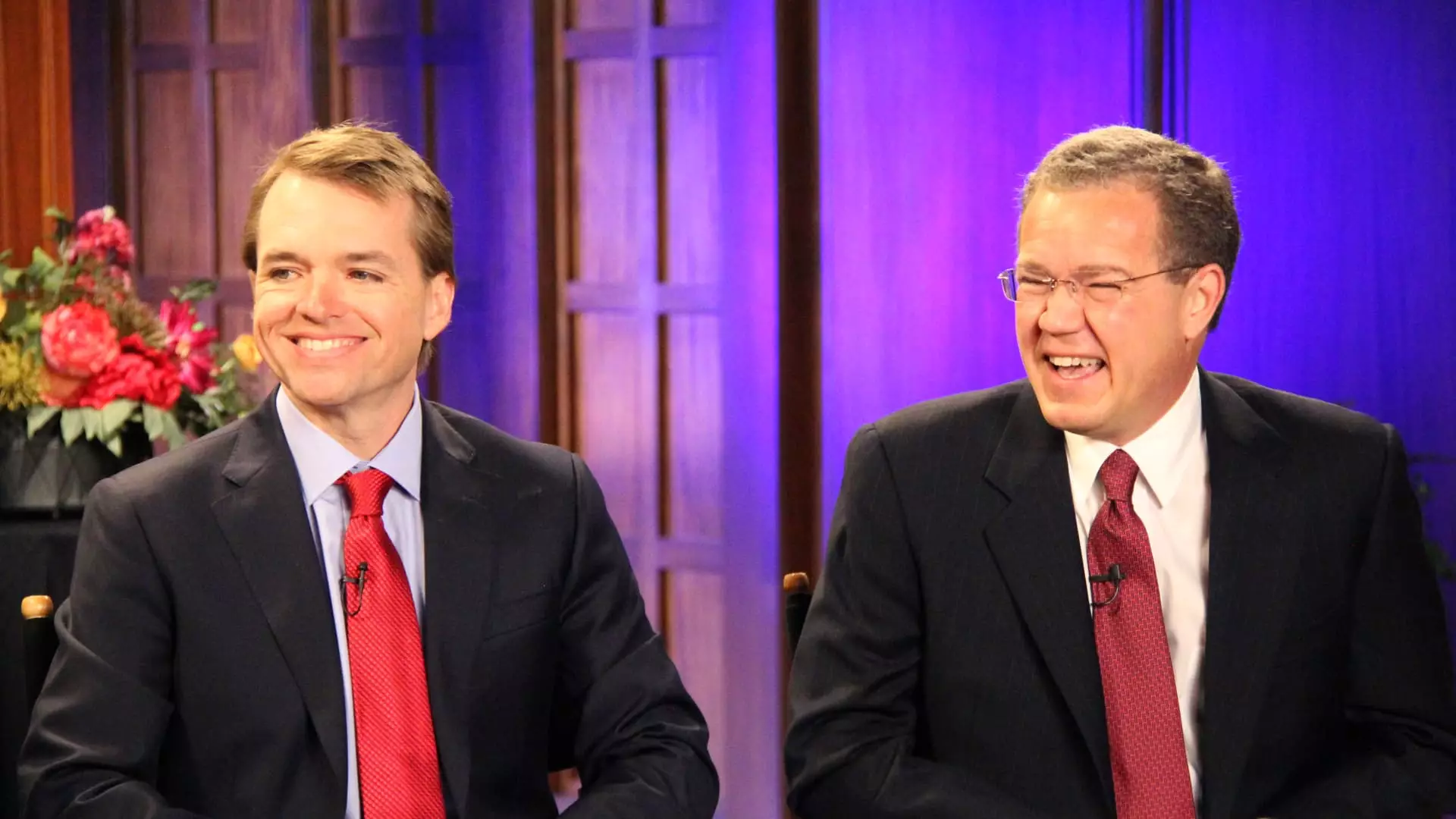In the wake of Warren Buffett’s impending retirement, the atmosphere surrounding Berkshire Hathaway is charged with both anticipation and anxiety. With a colossal investment portfolio worth around $275 billion hanging in the balance, all eyes are firmly fixed on Greg Abel, the heir apparent. Abel’s imminent transition into the role of CEO comes at a time when Berkshire Hathaway’s reputation as a bastion of prudent capital allocation is under scrutiny. While Abel is undoubtedly a skilled operator with a keen understanding of businesses, doubting his ability to manage a prestigious investment portfolio effectively might be warranted.
A New Paradigm of Leadership
The essence of Berkshire Hathaway’s success has been its unique blend of operational wisdom and unrivaled investment acumen—qualities embodied by Buffett during his remarkable 60-year tenure. Abel is known for his expertise in navigating operational complexities, yet his experience does not extend far beyond that realm. “His forte lies in allocating capital effectively,” observes David Kass, a finance professor and Berkshire Hathaway shareholder. However, the ask is larger than merely running operations; it involves making astute investment decisions in an era defined by unpredictability and volatility.
Abel’s struggles with this dimension of leadership raise an alarming question: will the administrative track record suffice when it comes to navigating the turbulent waters of stock market investments? The ambiguity surrounding Abel’s capability to maintain the rigorous investment strategies that defined Buffett’s legacy could dampen investor sentiment and, by extension, impact Berkshire’s stock performance.
The Riddle of the Investment Lieutenants
As uncertainty looms over Abel’s prospective stewardship, attention turns to his two investment lieutenants, Todd Combs and Ted Weschler. Each has demonstrated a notable degree of stock market savvy, with around $15 billion each under their purview. While speculation increases about their potential expanded roles in managing Berkshire’s investments, a cloud of opacity continues to obscure their performance at the helm of this monumental portfolio.
Despite their credentials, the lack of transparency on their track records may lead investors to question whether they can fill the void left by Buffett. “The question is who will be the captain when the seas get stormy,” states Catherine Seifert, a CFRA analyst. Investors are likely to be uneasy until clarity emerges.
The Fear of Underperformance
Looking ahead, a significant concern is that the high standards set by Buffett may result in an unyielding sense of impending underperformance from Abel’s management. His assertion that he will adopt Buffett’s “patient value investing” style is reassuring, yet the real test will lie in execution. If Abel falls short, the ramifications could be grave, especially in the eyes of discerning shareholders who expect superior returns consistent with the firm’s established reputation.
Market volatility coupled with Abel’s singular vision might very well hinder Berkshire’s ability to make high-stakes acquisitions or strategic investments in industries evolving at an unprecedented pace. This concern highlights a broader issue—when one steps into a role declared as an heir to genius, even the slightest deviation from established norms invites scrutiny and skepticism.
The Tug-of-War for Governance
Another facet to consider is the governance dynamics within Berkshire Hathaway. As Abel will also need to collaborate closely with Combs and Weschler, a tug-of-war for control could undermine timely decision-making. Dissonance among executives, particularly concerning capital allocation strategies may delay important decisions, especially as market conditions fluctuate.
Abel appears to face an uphill battle. The robust culture of accountability and decision-making established by Buffett must either be retained or evolved under Abel’s direction. Should corporate governance structures begin to fray, investor confidence may dwindle, leading to dramatic repercussions for the company’s market valuation.
A Legacy in Jeopardy?
In reflecting on the transition from Buffett to Abel, it is critical to understand the implications of betting on someone without the legacy of investment brilliance that has characterized Berkshire Hathaway. With a mammoth cash reserve of $347 billion, the opportunities for strategic investments are enormous; however, the risk of poor decision-making looms larger than ever.
As we eagerly await this new chapter in Berkshire Hathaway’s storied history, the era of Warren Buffett draws to a close, leaving behind an intricate tapestry of unrivaled success. Will Greg Abel rise to the occasion, or will he emerge as a mere caretaker, unable to forge a legacy of his own amidst the towering shadow of the giant? Only time will tell.

